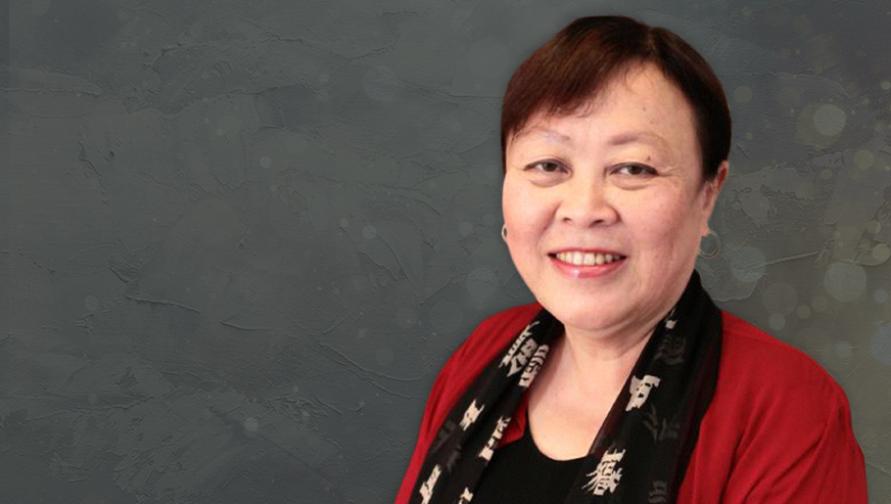
The School of Humanities at the University of California, Irvine will welcome internationally renowned scholar Hsiung Ping-chen as a CIPSH Chair in New Humanities for five years. Designated by International Council for Philosophy and Humanistic Studies, the honorary position is part of a global initiative to highlight and encourage collaboration among humanities centers and networks and to attract greater attention to the humanities and their impact on society today.
Hsiung is a professor of history and director of the Taiwan Research Centre at the Chinese University of Hong Kong.
Her objectives while in residence involve convening a multiyear project that will draw on UCI’s research expertise in food studies and innovative approaches to food security, particularly for UCI students. The effort will include a symposium on modern vegetarianism and a large international conference on “Migration of Tastes: Chinese Food Culture in California and the U.S.” Hsiung will also collaborate with the UCI Center for Medical Humanities on programming and research projects, such as the opportunity for UCI faculty to teach at the annual summer seminar on medical/health humanities at National Taiwan University’s College of Public Health.
“We are thrilled to welcome Professor Hsiung to UCI as CIPSH Chair in New Humanities,” said Tyrus Miller, dean of the UCI School of Humanities. “She has already proven to be a valuable contributor to UCI scholarship as part of our Center for Asian Studies. She’s made connections with our faculty scholars in medical humanities and food studies and will continue to contribute to UCI’s participation in international research networks and collaborations.”
As part of her residence, Hsiung will help both initiate individual projects at UCI and coordinate linked thematic projects carried out by scholars in North America, Asia and Europe. In this way, the CIPSH Chair at UCI may have an impact at multiple levels – single researchers through their own scholarship, collaborative teams developing novel methodologies and breaking ground in new subfields, and networks of scholars and institutions through conferences and publications of the resulting scholarship.
“For me and my CIPSH Chair, I couldn’t think of a better place than UCI as the embodiment of the ‘new humanities’ in concept and practice. I look forward to this rare opportunity to champion this mission with leaders, colleagues, and students of the School of Humanities for five exciting years,” Hsiung said.
Hsiung served as director of the Research Institute for the Humanities at the Chinese University of Hong Kong from 2012 to 2016, dean of the arts faculty at that institution from 2009 to 2011, and dean of the College of Liberal Arts at Taiwan’s National Central University from 2004 to 2007. In 2003, she founded the Asian New Humanities Net. Hsiung has been a research fellow at the Institute of Modern History at Taiwan’s Academia Sinica since 1990 and the K.T. Li Chair at National Central University since 2006. She earned a Ph.D. in history and an M.A. in art history at Brown University and an M.S. in population studies and international health at Harvard University.
Hsiung will present her inaugural talk, “Self-Renewal: An Intellectual and Institutional Quest” on January 28 at 4 p.m. in Humanities Gateway 1030.
Hsiung is a professor of history and director of the Taiwan Research Centre at the Chinese University of Hong Kong.
Her objectives while in residence involve convening a multiyear project that will draw on UCI’s research expertise in food studies and innovative approaches to food security, particularly for UCI students. The effort will include a symposium on modern vegetarianism and a large international conference on “Migration of Tastes: Chinese Food Culture in California and the U.S.” Hsiung will also collaborate with the UCI Center for Medical Humanities on programming and research projects, such as the opportunity for UCI faculty to teach at the annual summer seminar on medical/health humanities at National Taiwan University’s College of Public Health.
“We are thrilled to welcome Professor Hsiung to UCI as CIPSH Chair in New Humanities,” said Tyrus Miller, dean of the UCI School of Humanities. “She has already proven to be a valuable contributor to UCI scholarship as part of our Center for Asian Studies. She’s made connections with our faculty scholars in medical humanities and food studies and will continue to contribute to UCI’s participation in international research networks and collaborations.”
As part of her residence, Hsiung will help both initiate individual projects at UCI and coordinate linked thematic projects carried out by scholars in North America, Asia and Europe. In this way, the CIPSH Chair at UCI may have an impact at multiple levels – single researchers through their own scholarship, collaborative teams developing novel methodologies and breaking ground in new subfields, and networks of scholars and institutions through conferences and publications of the resulting scholarship.
“For me and my CIPSH Chair, I couldn’t think of a better place than UCI as the embodiment of the ‘new humanities’ in concept and practice. I look forward to this rare opportunity to champion this mission with leaders, colleagues, and students of the School of Humanities for five exciting years,” Hsiung said.
Hsiung served as director of the Research Institute for the Humanities at the Chinese University of Hong Kong from 2012 to 2016, dean of the arts faculty at that institution from 2009 to 2011, and dean of the College of Liberal Arts at Taiwan’s National Central University from 2004 to 2007. In 2003, she founded the Asian New Humanities Net. Hsiung has been a research fellow at the Institute of Modern History at Taiwan’s Academia Sinica since 1990 and the K.T. Li Chair at National Central University since 2006. She earned a Ph.D. in history and an M.A. in art history at Brown University and an M.S. in population studies and international health at Harvard University.
Hsiung will present her inaugural talk, “Self-Renewal: An Intellectual and Institutional Quest” on January 28 at 4 p.m. in Humanities Gateway 1030.
History
Medical Humanities
